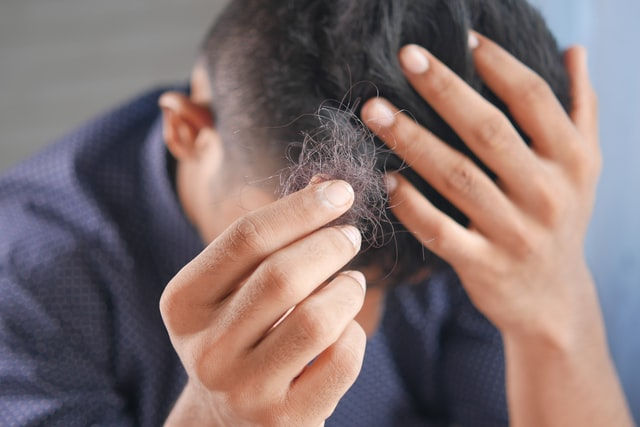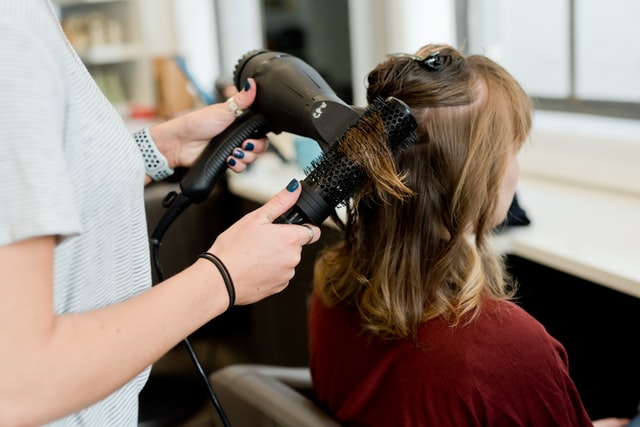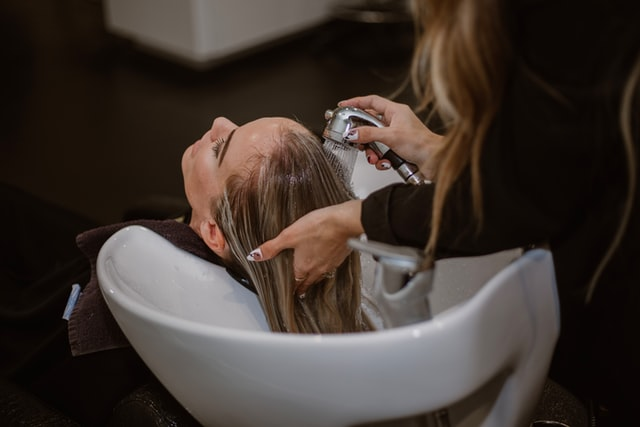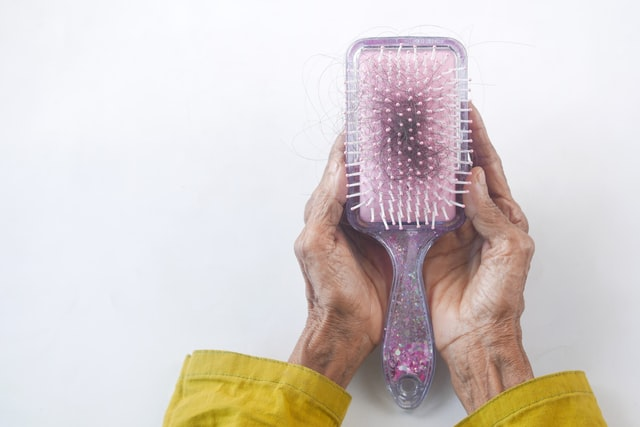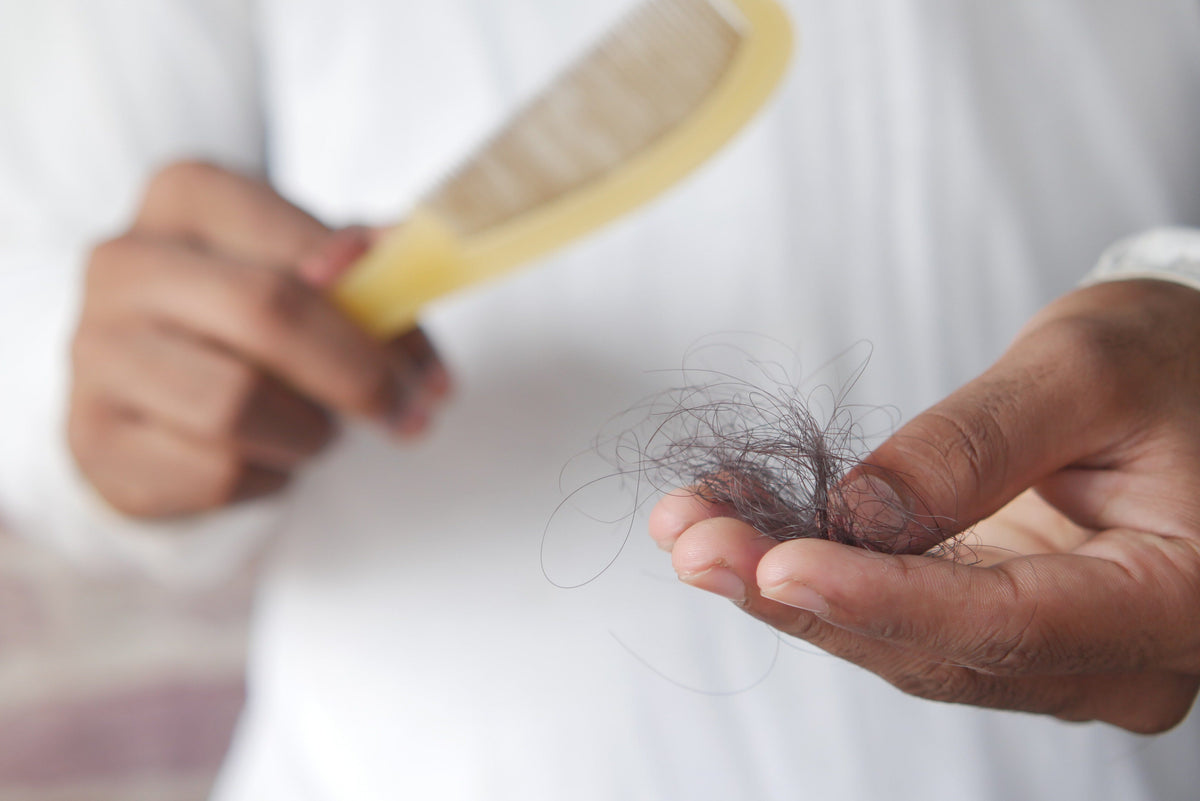
How to Stop Hair Fall
Time to read 8 min
Time to read 8 min
There are several causes of hair loss in men and women, such as genetics, lifestyle, infections, medication, and secondary health issues. In the event of temporary hair loss, the scalp may also be impacted requiring immediate treatment and regular monitoring. Hair loss is multidimensional as you can experience hair loss and deterioration due to periods of stress as well.
One of the main symptoms of early hair fall is losing hair in clumps. Hair growth may also be stunted or patchy in certain areas of your scalp, which could indicate the presence of alopecia or infection. In order to prevent hair loss long-term, you should get a complete hair test done to determine the root cause of the hair loss.
Everyone loses hair regularly, which grows back after its cycle is complete. Around 50 -100 hair strands a day can be considered within the normal range. However, when you can experience a shift in the texture of your hair or larger clumps of hair start to fall off, it is time to get tested.
These are the key signs that you should be careful of when determining whether you are experiencing chronic hair loss.
Hair loss that occurs in single or multiple patches should be identified and treated immediately. These could be a sign of alopecia or vitamin deficiencies, which can be treated with the right strategies.
When hair is thinning at the top and the roots appear weak, you may be experiencing male pattern or female pattern hair loss. Weakening of strands and lack of thickness or volume can also be associated with MPHL/FPHL, which can largely be due to genetic factors.
In the event of an infection, the scalp may be irritated, flaky, or reddish in appearance. This can lead to hair fall and a lack of regeneration in the area. You may also experience sensitivity in the area affected. It is best to get a topical treatment performed to restore hair health.
A sudden shock to the system, either due to stress or injury, can lead to a hair loss response in the body. Hair loss can be treated, with larger stress issues managed through additional strategies. The reduction of stress can recover hair loss in these cases.
When regenerated hair emerges weaker, it can be a sign of hair fall caused by an internal event. A medical condition can cause hair to lose its strength over time, which can go unseen for extended periods. The regeneration of hair can be addressed with the right protocols.
Another important step in stopping hair fall is to identify the key reasons behind hair loss. There can be multiple issues, from diet to hormones, that can be the core reason for your hair loss experience. That is why identifying the right cause is key to stopping hair loss long-term.
A diet that is largely processed, lacking the right nutrients and vitamins, can lead to hair loss due to poor nutrition. If your diet is also causing secondary medical conditions, such as obesity, diabetes, etc., then hair loss could be a symptom related to that as well. Improving your intake of B12, Vitamin D, protein, biotin, and iron can help prevent hair loss.
Stress, smoking, and excessive drinking can lead to temporary hair loss. You may experience some regeneration when improving your lifestyle and exercise choices. Sleep is also important, as a lack of quality sleep can prevent our bodies from repairing damaged follicles.
If you have a family history of hair thinning, then you may have a genetic predisposition to lose hair earlier. Male and female pattern hair loss is also largely genetic in nature, especially if both parents have the occurrence in their families.
When individuals experience hormonal changes or shifts in their biological systems due to medical issues, hair loss can occur. Balancing your hormones with the right medication can help control hair loss.
Hair products that aren't organic and are chemically harsh may cause hair loss in both men and women. You should review your hair care routine and eliminate potential hair gels, hair colours, and other products that could be harsher for your hair. Excessive blow-drying of wet hair can also cause damage especially at higher heat.
Significant levels of weight loss, caused by nutritional deficiencies, disease, or stressful events, can cause hair fall in individuals. You should visit a specialist immediately to review treatment options.
Hair strengthening requires a multi-stage approach, starting from getting the right hair fall control test performed. You should also consult with your doctor and initiate treatment to prevent further hair loss.
Getting a complete blood and hair sample test performed is one of the best ways to get better insights into hair loss causes. While the reason could be toxicity, deficiency, or immune system issues, having the right test performed is key. It can additionally provide insights to reason of hair fall in male individuals that may have high DHT.
Diets that are rich in vitamin B12, iron, protein, and other essential elements is one of the best ways to strengthen your hair. Many of the nutrients required by our hair come from a diet that is rich in eggs, milk, fortified foods, leafy greens, and fresh fruits.
The right approach for hair strengthening is to improve supplementation, with biotin, iron, vitamin b12, etc. depending on the results of your hair analysis test. You may experience benefits weeks after supplementation as your levels start to improve over time.
Your hair follicles can experience blockage due to oils and particles that may settle on your scalp. With regular hair washing you can eliminate the risk of follicular damage due to blockages, and improve hair texture with the right conditioners. Using a milder shampoo can help significantly.
Several topical medication can be applied to stop hair fall and improve hair strength. Minoxidil and other medication can be used to improve follicular development by reducing the telogen phase and shifting into anagen phase.
Low-light laser treatment can also help prevent further hair follicle deterioration and stimulate new hair development. Concentrated light may have an impact on regeneration of hair within individuals, based on several factors.
When thinking about how to stop hair fall our instinct is to opt for home remedies and at-home solutions. There are several remedies that you can use to strengthen your hair and mitigate hair loss both temporarily and longer term.
You can use coconut oil and regularly apply it to your scalp if you are experiencing hair loss caused due to dry scalp and humidity. With hair loss come home remedies, and coconut oil is one of the first ones that people use to stimulate hair follicles for healthy hair.
Another key remedy for hair growth and strengthening is onion juice, which can be prepared at home using simple methods. It is important to continue applying onion juice for a few weeks to experience beneficial results.
You can also use Rosemary oil and mix it with Argan oil as a home remedy for hair loss prevention and repair. A mixture of oils and blends can help improve circulation and reduce the effects of hair loss.
Aloe Vera has also shown to produce results in terms of home remedies for hair loss. It can help reduce dandruff, irritations in the scalp, and open blocked pores naturally. While it is best to consult with a specialist for hair loss prevention, Aloe Vera can provide relief.
Essential traditional elements such as Amla, Bringraj, Methi, and Shikakai can help prevent hair fall by working directly on strengthening roots. These traditional strategies can also improve the texture of your hair, based on several factors.
Testing hair loss can be performed in multiple ways for measuring key factors. With different parameters playing unique roles, it is important to test for the following markers for hair loss.
1) DHT hormone level for measuring impact of the androgen on hair loss.
2) Mineral test for calcium, magnesium, zinc, etc. and any key deficiencies.
3) Thyroid health test, for measuring various levels of TSH, T3, etc.
4) Iron and blood health markers for measuring deficiencies in iron, RBC, etc.
5) Vitamin deficiencies, especially vitamin B12 and vitamin D.
6) Presence of heavy metals and toxins that may be detected through hair sample.
There may be several other parameters that can be tested within a hair loss testing package as well. You should consult with a doctor about your results to formulate the right approach for hair health restoration.
Both men and women experience ageing related hair loss, caused by hormonal shifts, loss of hair follicle strength, slower renewal, etc. If you are experiencing sudden hair loss, then it is ideal to get tested regardless of age. The presence of clumps of hair on comb or near our bedside can indicate the presence of hair loss.
In many cases, hair fall can be genetic especially as you age. The extent of hair loss and the type of hair loss depends individually, with some losing hair faster than others. You should always review other factors that can either contribute or slow-down the pace of hair loss, through a hair analysis DHT test.
A hair transplant can be the right approach if you don't have deficiencies and are experiencing genetic or male/female pattern hair loss. Hair thinning and hair loss can also be addressed with a quality hair transplant solution. It is best to consult with a specialist when opting for a transplant.
*Medical Disclaimer - The following information is for educational purposes only. No information provided on this website, including text, graphic, and images, are intended as substitutes for professional medical advice. Please consult with your doctor about specific medical advice pertaining to your condition(s)
